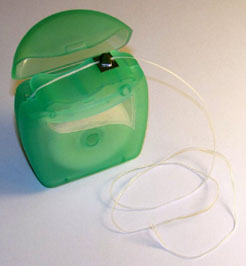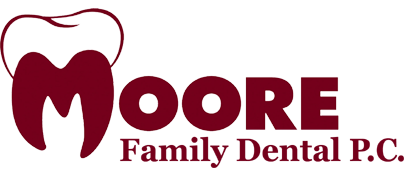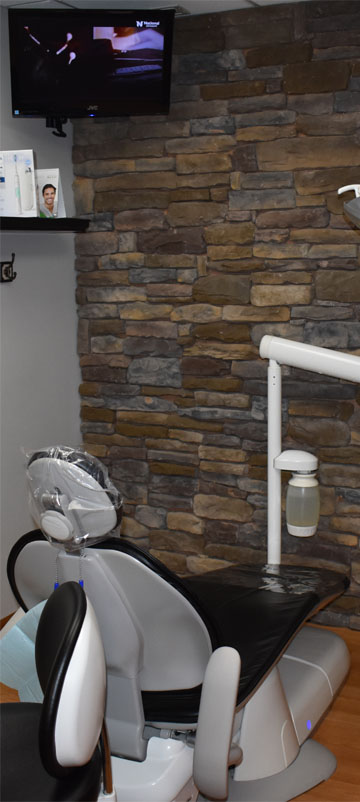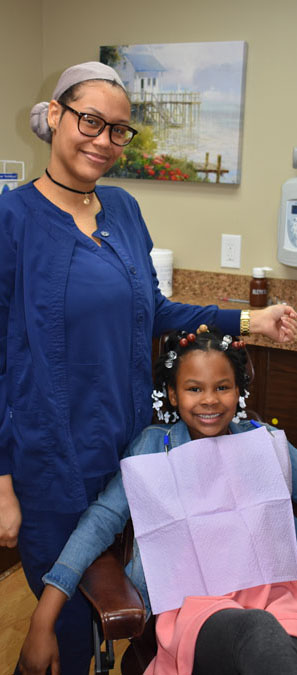In addition to our standard FAQs, we get many questions regarding the basics of oral healthcare. In our ongoing quest to help educate the community and promote great dental habits, here are a few more common questions.
 Q. I floss a few times per week. Is that enough?
Q. I floss a few times per week. Is that enough?
A. Flossing a few times a week is better than not flossing at all, but it’s not enough. The best-case scenario would be to floss every day and brush twice each day. If you’re new to flossing, we can help you choose a type of floss that would suit your preferences. You might like the type that comes in a plastic container so you can choose the length of the strand. Alternatively, you might prefer the small plastic flossing picks. You have options; a simple trip to the supermarket will help you figure out what they are. We’d be happy to offer input, and we can also give you a refresher course on proper flossing techniques.
Even if you brush faithfully, you shouldn’t skip flossing. “Flossing is an essential part of the tooth-cleaning process because it removes plaque from between teeth and at the gumline, where periodontal disease often begins.” Flossing is an important step to help you maintain excellent oral health.
Q. When should I start brushing my baby’s teeth?
A. You can begin brushing before your baby’s teeth have come in. Use a small, soft toothbrush that is made especially for baby’s tender gums. Don’t use toothpaste; just massage your child’s gums gently with the brush. This will help your child get used to brushing even before the teeth come in; it will also help keep your baby’s gums clean and healthy.
You are laying the foundation for a lifetime of healthy dental habits, so make sure you do this every day. Continue it when your child’s teeth come in. Remember that young children are not capable of brushing by themselves, but they are capable of learning. Establish a routine: allow your child to brush for a few minutes, and then it’s your turn. Brush your child’s teeth and offer age-appropriate lessons and guidance so your child will gradually begin to learn this important skill.
Q. I brush and floss every day. Is there anything else I should be doing?
A. It would be a great idea to add one more step to your daily routine. “Rinsing your mouth each day with an anti-microbial mouth rinse is another important step in preventing the gum disease known as gingivitis.”
Also, don’t forget about regular dental appointments. They’re an important part of keeping your teeth and gums healthy for years to come.
Q. My teeth don’t look white anymore. Can I do anything about that?
A. Why not incorporate a whitening toothpaste into your daily routine? You’re brushing every day anyway, so use that time to brighten your teeth while you do it. If you aren’t happy with the results, make an appointment for teeth whitening. We’ll take impressions of your teeth and make custom bleaching trays; you’ll be so happy with the results after just a few days. Teeth become discolored over time; the culprits may include smoking, coffee, red wine, and so on. You don’t have to live with the discoloration forever, though.



